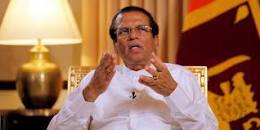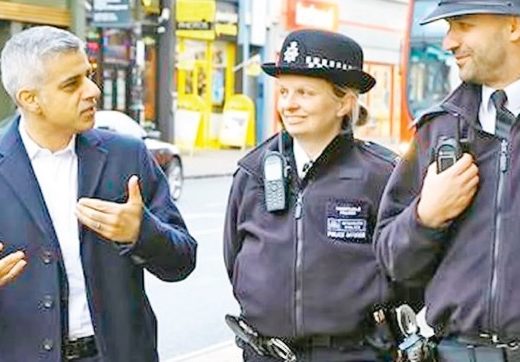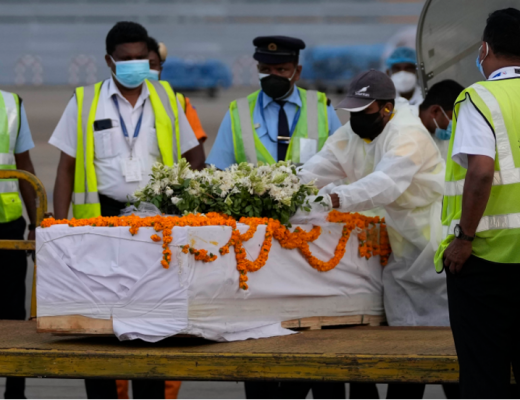The General Election in 2020 created history for many reasons. Firstly, it was held according to the Health and Safety regulations, due to COVID-19 pandemic, when the Election Commission and the Ministry of Health’s approval and confirmation confirmed it is safe to hold the Election. Finally, it ended up as a peaceful and safe Election ever held. The Election Commission played a significant role in this connection.
After much ado, the General Election was held on 5 August 2020. Twenty-two political parties and 7,452 candidates contested for the 9th Parliament in Sri Lanka. The dissolution of the old Parliament was prorogued on 2 March 2020, and the General Election was to be held on 25 April. Later it was postponed to 20 June and finally extended to 5 August 2002, mainly due to health reasons following the outbreak of COVID-19 pandemic.
The General Election in 2020 created history for many reasons. Firstly, it was held according to Health and Safety regulations, due to the COVID-19 pandemic, when the Election Commission and the Ministry of Health’s approval and confirmation confirmed it is safe to hold the Election. Finally, it ended up as a peaceful and safe Election ever held. The Election Commission played a significant role in this connection.

On the Election day, 12,985 polling stations prepared to check the body temperature of voters and hand sanitisation by Election officers on duty. Officers on Election duty checked identifications in a barricaded cocoon covered with plastic covers. 70,000 Police force was deployed for Election duty to ensure that everything went smoothly.
The voter had to be prepared in advance about his choice about the candidate’s preferential vote number. On the ballot paper, which was 23” long carried only a jumble of numbers in two rows horizontally at the bottom, while the names of the party and symbols were printed vertically. This could have contributed to the number of rejected votes exceeding over 700,000.

Results
The results of the General Election were astounding. One of the major political parties in the country from the very inception, the United National Party, which shared the legislative and executive power for over six decades alternatively faced a humiliating defeat and ‘ hit the dust’ by failing to win a single parliamentary seat. The conformists in the UNP were heartbroken due to the split in the UNP, into two factions, viz Ranil Wickremesinghe group and Samagi Balawegaya led by Sajith Premadasa.

In his Election campaign, Sajith Premadasa promised to ‘form a Government with a conscience.’ He also said his Government would grant every low-income family in the country a bonus payment of Rs.20,000/- each month, until the country recovered by his policies! It was taken as a pun when he was denounced by the former Finance Minister Ravi Karunanayake (UNP deputy leader) by openly criticising with facts and figures and stating that it was an impossibility! In a post-mortem, after the humiliating defeat of the UNP, some party members blamed Sajith Premadasa for ruining the UNP!
Old guards put to rest
Nearly one-third of former MPs lost their parliamentary seats. The Sri Lanka voter has matured at long last. President Gotabaya Rajapaksas request convinced people when he said: “ You do your duty, and I shall do mine!” It was nothing but the charismatic and the honest approach of the President that helped the SLPP a landslide victory backed by Mahinda Rajapaksa, the leader of the party, who ended a 30-year old terrorist war.

President did approach in handling the COVID-19 in a systematic manner from the very start. It made Sri Lanka today to be recognised as one of the South Asian Countries for managing the pandemic successfully, with only 11 deaths ( even those 11 were infected Sri Lankans who were brought home from abroad).
Experienced Politician

Mahinda Rajapaksa, with 50 years of political experience, was Sri Lanka’s Prime Minister three times before. He is an experienced politician who has held the positions of MP, Minister, Opposition Leader, Prime Minister and the President of the Democratic Republic of Sri Lanka. He created an Election record at the 2020 general Election scoring the highest number of preferential votes (527,764). One of the biggest concerns for the new ‘Rajapaksa-led’ Government would be to repeal or modify the 19th Constitutional Amendment executed by the previous Yahapalana Government. 19th Amendment annexed to Sri Lanka’s Constitution created a hindrance to the entire system of governance without any consistency and order.
While the UNP leader, Ranil Wickremesinghe suffered humiliating loss, the Samagi Balawegaya, led by Sajith Premadasa, (the broken faction from the UNP), did not get a mandate either to perform as a strong Opposition. Anura Kumara Dissanayake (National People’s Power) in his final rally in Colombo bragged about claiming that: “Power-hungry rulers are unconcerned about the people and Sri Lanka will face a more calamitous period if Rajapaksas return to power.”

JVP-led NPP expected to improve on their performance in 2020 Elections at least, rather than to seek power. Miraculously the JVP-led NPP outshone the UNP in most of the electorates and came up as the third force behind the SJB. In contrast, in most electorates, the UNP registered less than one thousand votes, and in specific electorates, they failed even to exceed that figure! The JVP with much of hope managed only get 3.84 per cent (445,958) votes, doing verse than in 2015. Finally, the JVP leader, after their humiliating defeat, admitted that “the people have placed their trust in the President and have given them 2/3rd majority in Parliament.”
National List

The Sri Lanka Freedom Party and the UNP were two main parties that shared the legislative and executive power for over six decades alternatively. However, both failed in 2020 General Elections to muster enough votes for an MP to be elected in the recent General Election. They were rewarded with a seat each from the National List.

The Podujana Peramuna led by Mahinda Rajapaksa, backed by President Gotabaya Rajapaksa managed to form a stable Government with 145 seats (128 won at the General Election with 17 seats allocated to them from the National List.) Besides, the new Government will receive support from Douglas Devananda’s EPDP; TVMP (Pillayan’s party); SLFP (in Jaffna); A.L.M.Athaulla National Congress and Ape Janabala Party, one seat each from all those parties through the National list. At the time of compiling this article, the disgraced UNP was struggling with the three-corner fight in naming their national list member. The defeated leader, Ranil Wickremesinghe, is not poised to accept an MP’s post out of the National List. According to news reports there exists a battle between Ravi Karunanayake (Deputy Leader of the UNP); Akila Viraj Kariyawasam (Secretary of the UNP) and Daya Gamage!
A distinctive feature of the 2020 General Election was the fact that four sets of son and father got elected as members of Parliament. They include Mahinda Rajapaksa and his son, Namal Rajapaksa, Chamal Rajapaksa and his son Shasheendra Rajapaksa, Janaka Bandara Tennakoon and his son Paramita Tennakoon and Yadamini Gunawardena (Nominated Member) the son of Dinesh Gunawardena.
The swearing-in ceremony of the Prime Minister, Mahinda Rajapaksa for the 4th time in Sri Lanka was held on Sunday, 9 August at the Kelaniya Raja Maha Viharaya before President Gotabaya Rajapaksa amidst a throng of people and the Buddhist clergy chanting pirith and showering blessings on the new Prime Minister.
Pic credit: Google photos, Fire Fox, Ceylon Today Newspaper






